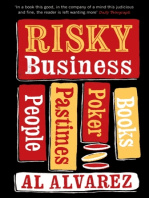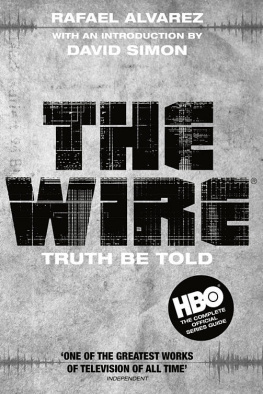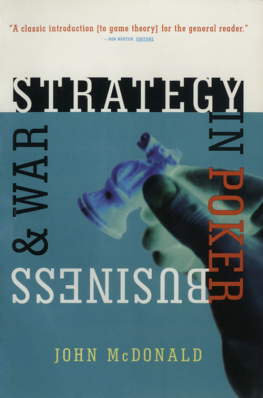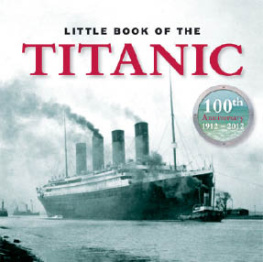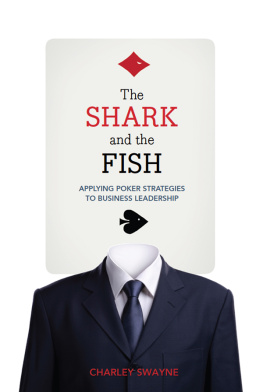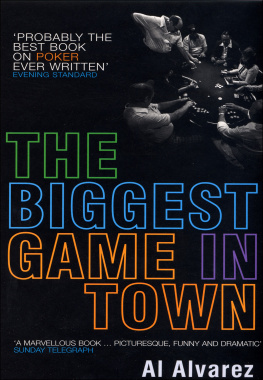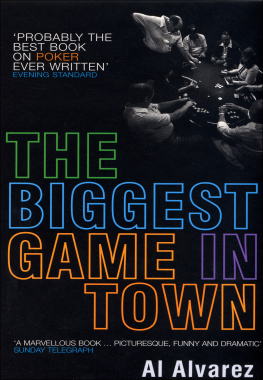Al Alvarez - Risky Business: People, Pastimes, Poker and Books
Here you can read online Al Alvarez - Risky Business: People, Pastimes, Poker and Books full text of the book (entire story) in english for free. Download pdf and epub, get meaning, cover and reviews about this ebook. genre: Detective and thriller. Description of the work, (preface) as well as reviews are available. Best literature library LitArk.com created for fans of good reading and offers a wide selection of genres:
Romance novel
Science fiction
Adventure
Detective
Science
History
Home and family
Prose
Art
Politics
Computer
Non-fiction
Religion
Business
Children
Humor
Choose a favorite category and find really read worthwhile books. Enjoy immersion in the world of imagination, feel the emotions of the characters or learn something new for yourself, make an fascinating discovery.
- Book:Risky Business: People, Pastimes, Poker and Books
- Author:
- Genre:
- Rating:5 / 5
- Favourites:Add to favourites
- Your mark:
- 100
- 1
- 2
- 3
- 4
- 5
Risky Business: People, Pastimes, Poker and Books: summary, description and annotation
We offer to read an annotation, description, summary or preface (depends on what the author of the book "Risky Business: People, Pastimes, Poker and Books" wrote himself). If you haven't found the necessary information about the book — write in the comments, we will try to find it.
Risky Business: People, Pastimes, Poker and Books — read online for free the complete book (whole text) full work
Below is the text of the book, divided by pages. System saving the place of the last page read, allows you to conveniently read the book "Risky Business: People, Pastimes, Poker and Books" online for free, without having to search again every time where you left off. Put a bookmark, and you can go to the page where you finished reading at any time.
Font size:
Interval:
Bookmark:
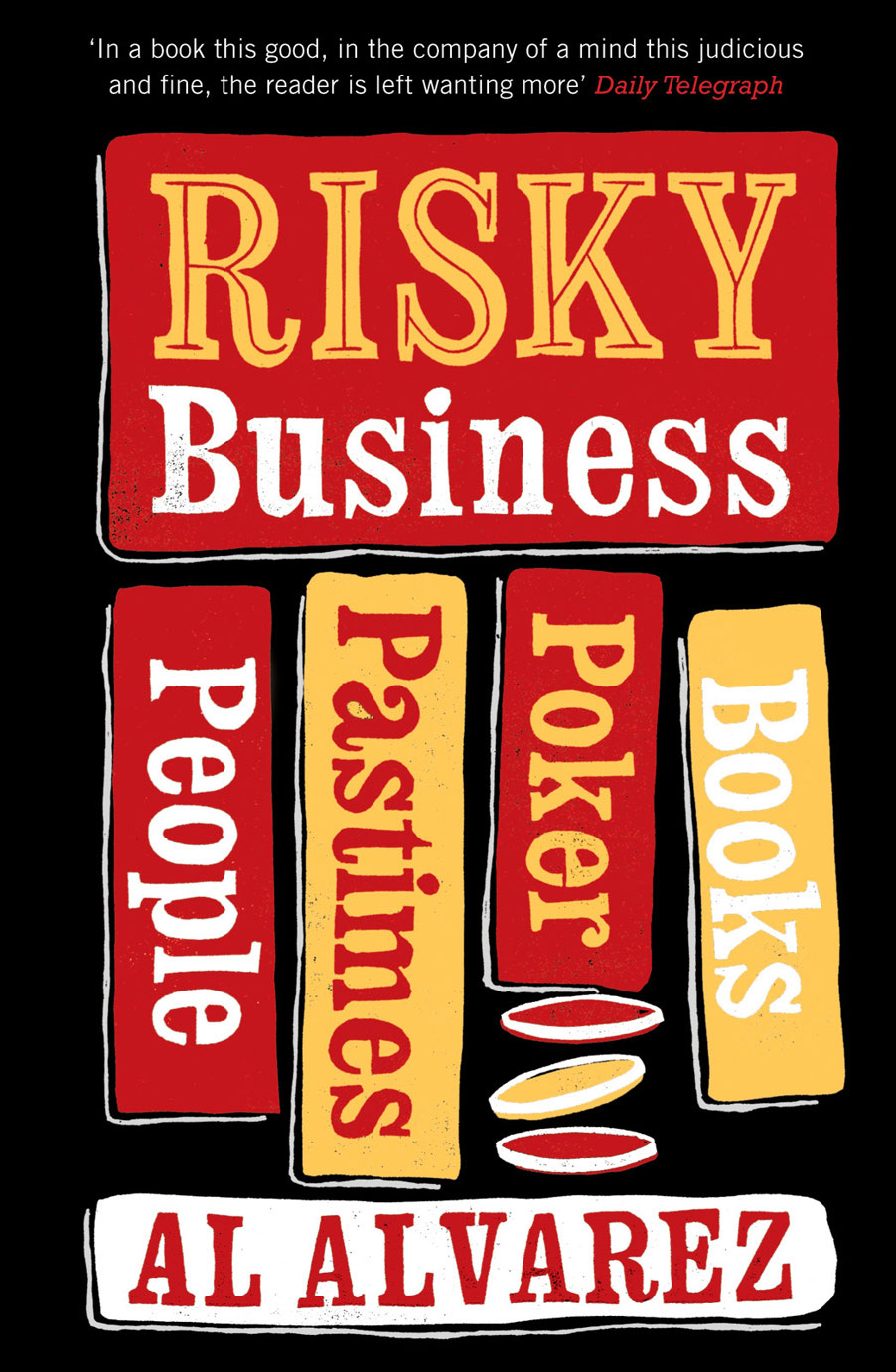
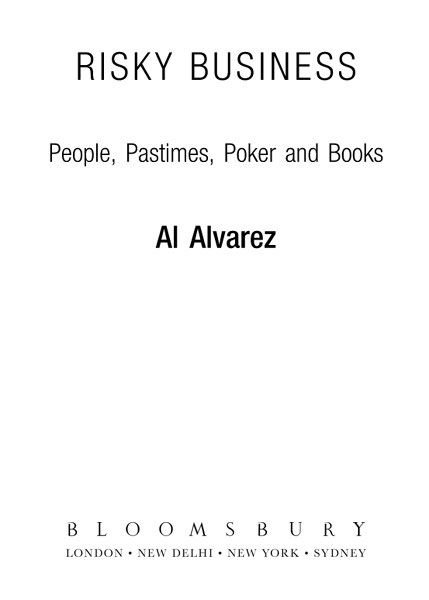
To Frank Kermode
It is nearly forty years since I last put together a collection of essays, not because I stopped writing them but because the audience for essays seemed to have withered away. Back in the late sixties, when university English departments were small and the study of literature had not yet become just another academic discipline with a specialised language of its own, literary criticism was still a subject that people who read books took seriously. It was thought of as an interesting minor art-form in its own right, writers writing about other writers, an honourable profession.
Honourable or not, by the time the essays were published, in 1968, Ecclesiastes 12, always my favourite chapter of the Bible, was increasingly on my mind, especially its writerly conclusion: Of making many books there is no end; and much study is a weariness of the flesh. By then I had been studying books, writing about them and also writing books of my own about other peoples books for twenty-odd years as a student, as a university teacher, as a literary journalist and poetry editor and critic for the Observer during the golden period when the paper regularly published a great deal of verse, much of it by poets not much known in Britain at that time Robert Lowell, John Berryman, Sylvia Plath, Zbigniew Herbert, Miroslav Holub. But two decades is a long time in poetry criticism and by 1968 I was truly weary of it; I wanted to move on and write about other subjects that interested me. So I called the collection Beyond All This Fiddle in homage to Marianne Moores famous poem on Poetry, which begins: I too dislike it: there are things that are important beyond all this fiddle.
I didnt dislike poetry, of course, but I had trouble with the fiddle, which seemed, in the context, to have two very different meanings. The poets fiddly pursuit of perfection every word in its inevitable, right place was, as they say, something I could relate to. My problem was with the other kind of fiddle the politics and jostling for position peculiar to small closed worlds. Having left the closed world of academia to become a freelance writer, I had no intention of being swallowed up in the closed world of poets and bookmen. Freelance, as I understood the word, meant being independent, living a life on my own terms, without bosses or colleagues or anyones timetable but my own. And because I had spent my teens shut up in wartime England and hadnt even crossed the Channel until I was eighteen, independence also meant getting out to see what there was to see and trying my hand at whatever was on offer. Literature was a fine and private place, but there were other worlds out there full of talented people who had nothing to do with the arts and I wanted to write about them, too.
It turned out not to be as easy as it sounds, especially with a family to take care of. So I have called this collection Risky Business because, among other reasons, thats what the freelance life is without the safety net of a regular pay cheque. That I have managed to get by is largely thanks to Robert Silvers, the magnanimous and open-minded editor of the New York Review of Books, who for more than forty years has let me write at length not only about literature, which he probably reckoned I knew something about, but also about what, for him, were the indecently eccentric subjects that also interested me mountaineering, polar exploration, flying, poker. For ten pleasurable years, I did something similar at The New Yorker, initially encouraged by another great editor, the late William Shawn, a chronically shy and nervous man, for whom my choice of topics was not so much eccentric as downright unhinged. He himself would never have dreamed, say, of hanging out with mountain climbers, or professional poker players in Las Vegas, or with engineers and roughnecks on oil installations in the North Sea, but he liked the idea of my going places for him and reporting back. Not many of the pieces I wrote for The New Yorker were about books; most of them were about people and places, and the three longest ended up as books The Biggest Game in Town, Offshore, Feeding the Rat. All of them, unusually for me, were a pleasure to write.
As I get older and less mobile, going places is no longer an option but people fascinate me more and more. Reading over the essays Ive written, I see that that has also been my constant preoccupation as a literary critic not biography but the way character expresses itself in language. Character, of course, is not the same as personality the cartoon idiosyncrasies that make good copy and help sell books. It is an inward quality, an indication of how you behave both in the world and in how you write, and it expresses itself in your tone of voice in modesty or the lack of it, in awareness of how words interact on the page and in the disinterested need to make each work as perfect as you can in its own terms.
With this in mind, I have selected pieces for this collection from literally hundreds of essays Ive written over the years. Only one of them appeared in my earlier collection: Beyond the Gentility Principle, the introduction to my Penguin anthology The New Poetry. I wrote it in 1961, a particularly dreary moment in British poetry, in the hope of stirring things up; and because the anthology was widely used in schools, it seemed to have succeeded at least for a time. I reprint it now because it lays out the principles or prejudices I started with, and provides a context for some of the pieces that follow. The essay on Risk, which first appeared in GQ, also provides a context, though of a different kind, and I used some material from it in my autobiography, Where Did It All Go Right? I also incorporated material from No Limit and from my introduction to Herbert O. Yardleys The Education of a Poker Player in another book, Poker: Bets, Bluffs, and Bad Beats. The other articles appeared, often in slightly altered or abbreviated form in the New York Review of Books, The New Yorker, the New York Times, the Observer and the Guardian. My thanks to all the editors concerned for their permission to reprint them here.
I am immensely grateful to Chiki Sarkar and Mary Morris, my editors at Bloomsbury, who waded through the untidy mess of typescripts and clippings I dumped on them and tactfully helped me weed out the ones that worked from the ones that didnt.
2006
In my early thirties, after my first marriage broke up, I acquired a brief reputation as a wild man: I drove fast cars, played high stakes poker, and spent more time than I could decently afford off in the hills, climbing rocks with the boys. Admittedly, this reputation only applied in the London literary world, where the standards, by any stretch of the imagination, were not high. As far as the hard men on the climbing scene in the 1960s were concerned, I was a minor player. They accepted me because I was a good man to have second on the rope strong and not prone to nervousness and also perhaps because most of them were fugitives from the straight world of business, engineering, plumbing, medicine or teaching, and I worked in what they considered an odd, faintly exotic trade. When it came to piss-ups and really hard routes, I wasnt in their league. Even so, the Welsh hills and the Cornish sea-cliffs were the places I was happiest, and where, I felt, my real life was led. Writing was just a way of filling in time between weekends.
A happy second marriage changed all that. Yet even thirty years later, in my sixties, I still tried to get to the rocks any Sunday when the weather was halfway decent, although my stamina and flexibility were sharply diminished, and the cliffs I went to a little sandstone outcrop called Harrisons Rocks, near Tunbridge Wells would fit comfortably into the foyer of a modern skyscraper. And whenever I was deprived of my weekly fix by work or rain or my increasingly decrepit body, I suffered withdrawal symptoms: restlessness, irritability, a glum conviction that my week had been spoiled.
Next pageFont size:
Interval:
Bookmark:
Similar books «Risky Business: People, Pastimes, Poker and Books»
Look at similar books to Risky Business: People, Pastimes, Poker and Books. We have selected literature similar in name and meaning in the hope of providing readers with more options to find new, interesting, not yet read works.
Discussion, reviews of the book Risky Business: People, Pastimes, Poker and Books and just readers' own opinions. Leave your comments, write what you think about the work, its meaning or the main characters. Specify what exactly you liked and what you didn't like, and why you think so.

